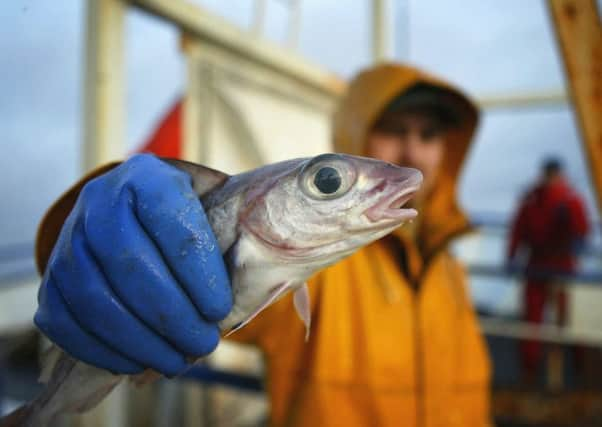Dr James Fenton: Choppy seas ahead for our fishermen


The sea is of course familiar to us all – waves, distant horizons and boats bobbing on the surface – but at the same time totally alien. For fundamentally we are terrestrial species and have little interest or understanding of what happens beneath the waves: out of sight, out of mind.
In practice it is very difficult for a fisherman to stop catching fish, and to be told by outsiders to stop fishing must be irksome, particularly as fishermen are fiercely independent and the best fisherman has always been seen as the one who catches the most. But history tells us that unregulated fisherman tend only to stop fishing when there are no fish left – think of the once-thriving cod fishery off the Grand Banks.
Advertisement
Hide AdAdvertisement
Hide AdFarmers of course have long learnt that they have to keep back some of their seed to plant next year’s crop, but this is relatively straightforward compared to fishermen having to calculate how many fish to leave in the sea as breeding stock. Hence the growth of fisheries science as a discipline, although the scientists are widely condemned by fishermen.
Unfortunately modern technology has made fishing too easy: a large modern trawler can hoover up the same amount of fish in an afternoon that a whole fleet would have taken a summer to catch. Thus mathematics comes into it: either we can have a few large boats or many small ones. Modern fisheries management is really about making fishing less effective, whether by restricting catch (quotas), allowing more fish to escape (mesh size) or reduction in effort (days tied up).
Fish are highly mobile species, moving from one country’s jurisdiction to another, so it makes sense to share the resource: isolationist Scottish policy is not only selfish but will create rancour. Interestingly, many UK trawler owners have sold their quotas to foreign nationals (and then complain about Spanish boats fishing in UK waters) and many Scottish trawlers are manned by a largely foreign crew: so why the dislike of foreigners?
And it is not as if any love is lost between the different types of fishing within Scottish waters. In the west, east coast trawlers have tended to be seen as predatory beings sweeping up everything in their nets and damaging the livelihoods of the inshore fisherman. And today even within inshore fishermen there is conflict between those using mobile gear, i.e. dragging nets over the seabed as in scallop dredging, and those using static gear such as lobster creels. With the recent talk of six and 12-mile limits, I think there is a strong case for bringing back the no-trawling three-mile limit.
Economic analysis indicates that the local economy benefits more from having many small boats than a few large ones, but it is the large east coast trawlers which tend to have the ear of government.
Exiting the Common Fisheries Policy is not going to result in a sudden outbreak of peace amongst the various fishing interests.
Dr James Fenton was the National Trust for Scotland’s first ecologist, and worked on landscape policy with Scottish Natural Heritage. He is also former CEO of Falklands Conservation and an ecology consultant. He lives in Oban.